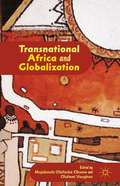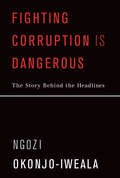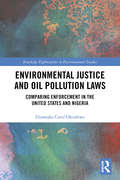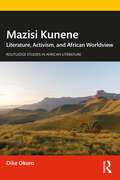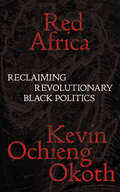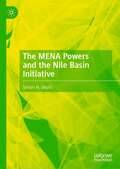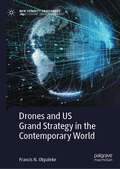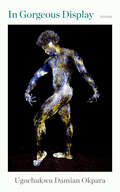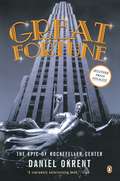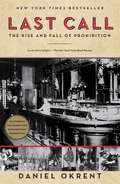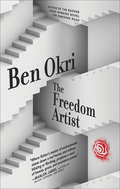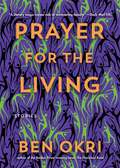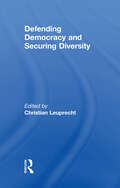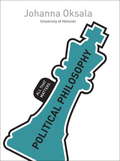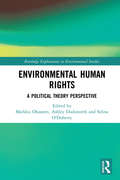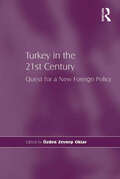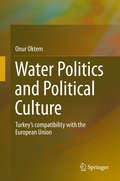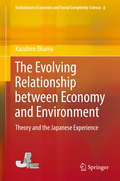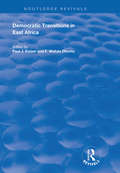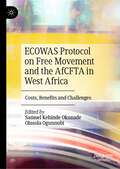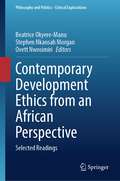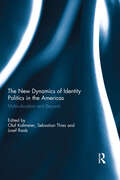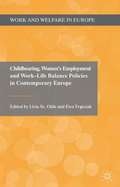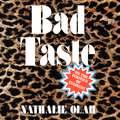- Table View
- List View
Transnational Africa and Globalization
by Mojúbàolú Olúfúnké Okome Olufemi VaughanThe dawn of neoliberal rationality in Africa in the 1980s coincided with a massive exodus of skilled Africans to the global North. Moving beyond the 'push and pull' framework that has dominated studies of this phenomenon, this collection instead looks at African transnational migrations against the backdrop of rapid and intensifying globalization.
Fighting Corruption Is Dangerous: The Story Behind the Headlines (The\mit Press Ser.)
by Ngozi Okonjo-IwealaA frontline account of how to fight corruption, from Nigeria's former finance minister Ngozi Okonjo-Iweala.In Fighting Corruption Is Dangerous, Ngozi Okonjo-Iweala has written a primer for those working to root out corruption and disrupt vested interests. Drawing on her experience as Nigeria's finance minister and that of her team, she describes dangers, pitfalls, and successes in fighting corruption. She provides practical lessons learned and tells how anti-corruption advocates need to equip themselves. Okonjo-Iweala details the numerous ways in which corruption can divert resources away from development, rewarding the unscrupulous and depriving poor people of services.Okonjo-Iweala discovered just how dangerous fighting corruption could be when her 83-year-old mother was kidnapped in 2012 by forces who objected to some of the government's efforts at reforms led by Okonjo-Iweala—in particular a crackdown on fraudulent claims for oil subsidy payments, a huge drain on the country's finances. The kidnappers' first demand was that Okonjo-Iweala resign from her position on live television and leave the country. Okonjo-Iweala did not resign, her mother escaped, and the program of economic reforms continued. “Telling my story is risky,” Okonjo-Iweala writes. “But not telling it is also dangerous.” Her book ultimately leaves us with hope, showing that victories are possible in the fight against corruption.
Environmental Justice and Oil Pollution Laws: Comparing Enforcement in the United States and Nigeria (Routledge Explorations in Environmental Studies)
by Eloamaka Carol OkonkwoThis book explores the relationship between oil pollution laws and environmental justice by comparing and contrasting the United States and Nigeria. Critically, this book not only examines the fluidity of oil pollutions laws but also how effective or ineffective enforcement can be when viewed through the lens of environmental justice. Using Nigeria as a case study and drawing upon examples from the United States, it examines the legal and institutional challenges impacting upon the effective enforcement of laws and provides a contrasting view of developed and developing countries. Focusing on the oil and gas industry, the book discusses the laws and international acceptable standards (IAS) in these industries, the principles behind their application, the existing barriers to their effective implementation, and how to overcome those barriers. Utilising an environmental justice framework, the book demonstrates the synergy between policy-making, human rights, and justice in oil-producing regions as well as addressing the importance of protecting the rights of minorities. Through a comparative analysis of the United States and Nigeria, this book draws out enforcement approaches and mechanisms for tackling oil-related pollution with a view to reducing environmental injustice in developing countries. Examining the role of NGOs in pursuing environmental justice matters, the book showed the regional courts as one avenue of overcoming the enforcement challenges faced by the developing countries. This book will be of great interest to students and scholars of environmental law, environmental justice, minorities' rights, business and human rights, energy law, and natural resource governance.
Mazisi Kunene: Literature, Activism, and African Worldview (Routledge Studies in African Literature)
by Dike OkoroThis book examines the life and work of Mazisi Kunene, the only recognized poet laureate of Africa, a Nobel Prize nominee, and a key symbol of African cultural independence. Kunene is widely recognized for his epic poems that assert cultural identity and condemn the disruption of the growth and development of African culture through colonialism/postcolonialism. This book explores how ‘oraliterature’ and cultural traditions informed Kunene’s poetry, how Kunene’s poetry highlights African women and mothers, and how activism, mythology and transnational identities are depicted in his verse to promote cultural and generational continuities from Africa to the Diasporic Africans. Drawing on a range of interviews and comparative studies, the book situates Kunene’s work in a wider conversation about South African social struggles. This book is an important contribution to our understanding of one of the giants of African literary history. As such, it will be of interest to researchers across African literary and postcolonial studies.
Red Africa: Reclaiming Revolutionary Black Politics (Salvage Editions)
by Kevin Ochieng OkothSalvaging a decolonised futureRed Africa makes the case for a revolutionary Black politics inspired by Marxist anti-colonial struggles in Africa. Kevin Ochieng Okoth revisits historical moments when Black radicalism was defined by international solidarity in the struggle against capitalist-imperialism, that together help us to navigate the complex histories of the Black radical tradition.He challenges common misconceptions about national liberation, showing that the horizon of national liberation was not limited to the nation-building projects of post-independence governments.While African socialists sought to distance themselves from Marxism and argued for a &‘third way&’ socialism rooted in &‘traditional African culture&’ the intellectual and political tradition Okoth calls &‘Red Africa&’ showed that Marxism and Black radicalism were never incompatible.The revolutionary Black politics of Eduardo Mondlane, Amílcar Cabral, Walter Rodney and Andrée Blouin gesture toward a decolonised future that never materialised. We might yet build something new from the ruins of national liberation, something which clings onto the utopian promise of freedom and refuses to let go. Red Africa is not simply an exercise in nostalgia, it is a political project that hopes to salvage what remains of this tradition—which has been betrayed, violently suppressed, or erased—and to build from it a Black revolutionary politics capable of imagining new futures out of the uncertain present.
The MENA Powers and the Nile Basin Initiative
by Simon H. OkothThis book presents the current conflict in the Middle East and North Africa over the construction of the Grand Ethiopian Renaissance Dam (GERD), the biggest in Africa. The project explains why economic, and to some extent political, survival is at the core of the conflict, specifically between Egypt and Ethiopia. Although the problem started with insistence of “no dam” by Egypt and subsequently narrowed down to a filling up period of the reservoir and technical operations of the dam, finding a solution agreeable to both nations has been elusive for the past eight years. Ensuring water for all members in the Basin is consistent with the United Nations Sustainable Development Goal 6, particularly given the looming effects of climate change, increasing population, urbanization, and rising consumptive water uses.
Drones and US Grand Strategy in the Contemporary World (New Security Challenges)
by Francis N. OkpalekeThis book makes a compelling case that lethal drone deployment as a counterterrorism tool and instrument of statecraft in targeted states engenders far-reaching consequences for US grand strategy. By examining how successive US administrations since 9/11 have deployed drones in pursuant of different typologies of US grand strategic objectives, the book probes the putative political and strategic goals drones supposedly advance, and the impact of its continued proliferation for US for international security. The book provides a powerful base of evidence for policy makers and researchers by pointing to the perils of deployment of drone technology beyond their immediate or short-term objectives. It also explores how non-state actors and authoritarian regimes such as armed groups are harnessing armed drone technologies for their own political and military ends, as well as the underlying implications for US grand strategy and international security at large.
In Gorgeous Display
by Ugochukwu Damian OkparaThe remarkable debut collection by a young Nigerian queer poet.“here / i am not his image / & i envy it / i shut my eyes against what is left / the crackling softness of life / like communion / desire is a marathon / a baton waiting for your grip / here / i am not running / neither is he / i sit with a man for the first time / & we talk about war . . .”—FROM “BEAUTIFUL BOY WITH GARLANDS AROUND HIS WAIST”In Gorgeous Display, by Nigerian poet Ugochukwu Damian Okpara, is a volume dedicated to the memory of those lost to anti-queer violence in Nigeria and elsewhere. In this first full-length collection of his work, Okpara examines queer male identity, effeminacy, and exile, offering meditations on desire and sanctuary, freedom and estrangement. Forty-three poems pierce familial relationships, safety, fear, and anxiety portrayed through the outward sign of hand tremors, queer lynching, survival, hope, the emptiness of exile, and reclamation of the self. Embracing the ephemeral and spiritual nature of physical beauty, Okpara also reveals the scars of queer displacement, illuminating the ways that leaving home is never quite the utopia one hopes for and how often the ache of abandonment can haunt a life lived in the present.
Great Fortune: The Epic of Rockefeller Center
by Daniel OkrentIn this hugely appealing book, a finalist for the Pulitzer Prize, acclaimed author and journalist Daniel Okrent weaves together themes of money, politics, art, architecture, business, and society to tell the story of the majestic suite of buildings that came to dominate the heart of midtown Manhattan and with it, for a time, the heart of the world. At the center of Okrent?s riveting story are four remarkable individuals?tycoon John D. Rockefeller, his ambitious son Nelson Rockefeller, real estate genius John R. Todd, and visionary skyscraper architect Raymond Hood. In the tradition of David McCullough?s The Great Bridge, Ron Chernow?s Titan, and Robert Caro?s The Power Broker, Great Fortune is a stunning tribute to an American landmark that captures the heart and spirit of New York at its apotheosis.
Last Call: The Rise and Fall of Prohibition
by Daniel OkrentA brilliant, authoritative, and fascinating history of America's most puzzling era, the years 1920 to 1933, when the U.S. Constitution was amended to restrict one of America's favorite pastimes: drinking alcoholic beverages. From its start, America has been awash in drink. The sailing vessel that brought John Winthrop to the shores of the New World in 1630 carried more beer than water. By the 1820s, liquor flowed so plentifully it was cheaper than tea. That Americans would ever agree to relinquish their booze was as improbable as it was astonishing. Yet we did, and Last Call is Daniel Okrent's dazzling explanation of why we did it, what life under Prohibition was like, and how such an unprecedented degree of government interference in the private lives of Americans changed the country forever. Writing with both wit and historical acuity, Okrent reveals how Prohibition marked a confluence of diverse forces: the growing political power of the women's suffrage movement, which allied itself with the antiliquor campaign; the fear of small-town, native-stock Protestants that they were losing control of their country to the immigrants of the large cities; the anti-German sentiment stoked by World War I; and a variety of other unlikely factors, ranging from the rise of the automobile to the advent of the income tax. Through it all, Americans kept drinking, going to remarkably creative lengths to smuggle, sell, conceal, and convivially (and sometimes fatally) imbibe their favorite intoxicants. Last Call is peopled with vivid characters of an astonishing variety: Susan B. Anthony and Billy Sunday, William Jennings Bryan and bootlegger Sam Bronfman, Pierre S. du Pont and H. L. Mencken, Meyer Lansky and the incredible--if long-forgotten--federal official Mabel Walker Willebrandt, who throughout the twenties was the most powerful woman in the country. (Perhaps most surprising of all is Okrent's account of Joseph P. Kennedy's legendary, and long-misunderstood, role in the liquor business.) It's a book rich with stories from nearly all parts of the country. Okrent's narrative runs through smoky Manhattan speakeasies, where relations between the sexes were changed forever; California vineyards busily producing "sacramental" wine; New England fishing communities that gave up fishing for the more lucrative rum-running business; and in Washington, the halls of Congress itself, where politicians who had voted for Prohibition drank openly and without apology. Last Call is capacious, meticulous, and thrillingly told. It stands as the most complete history of Prohibition ever written and confirms Daniel Okrent's rank as a major American writer.
The Freedom Artist
by Ben OkriAn NPR Best Book of 2020: “Okri’s tale is especially resonant in our current post-truth environment.” —Booklist (starred review)In a world uncomfortably like our own, a young woman called Amalantis is arrested for asking a question. Her question is this: Who is the Prisoner?When Amalantis disappears, her lover Karnak goes looking for her. He searches desperately at first, then with a growing realization that to find Amalantis, he must first understand the meaning of her question.Karnak’s search leads him into a terrifying world of deception, oppression, and fear at the heart of which lies the prison. Then Karnak discovers that he is not the only one looking for the truth.The Freedom Artist is an impassioned plea for justice and a penetrating examination of how freedom is threatened in a post-truth society. In Ben Okri's most significant novel since the Booker Prize–winning The Famished Road, he delivers a powerful and haunting call to arms.“With the stark power of myth, this political allegory evolves into an argument for artistic freedom.” —The New York Times Book Review“[With] prophetic warnings of apocalypse akin to Octavia Butler’s The Parable of the Sower, The Freedom Artist offers a contemplative look at post-truth society.” —Sierra Magazine“The concise, declarative prose and the parable-like architecture of the stories resemble ancient forms of wisdom literature.” —The Wall Street Journal“Combines fable, folklore, and mythology with moments of surreal horror to produce a rallying cry against the oppressive institutions that would seek to make knowledge illegal.” —Locus Magazine
Prayer for the Living
by Ben OkriTopical and timely, Booker Prize–winning author Ben Okri's new collection of short stories blurs parallel realities and walks the line between darkness and magic. A Library Journal Best Book of 2021 "No m
Defending Democracy and Securing Diversity
by Alan Okros David Last David Mason Christopher Dandeker Victoria Marie Basham Karen D. Davis Jelle van den Berg Rudy Richardson Liora Sion Anne Irwin Joan Mars Lindy Heinecken NoëLle Van Der Wagg-Cowling Donna Winslow Christian LeuprechtOld sergeants say, "we're here to defend democracy, not to practice it!" But are they right? The special mandate with which defence and security organizations are tasked imposes unique constraints with respect to the accommodation of diversity which differs from those faced by any other public or private organization. Yet, the compound effect of demographic, political, economic, social and legal pressures is making diversity as inevitable in the defence and security sector as in any other organization in advanced industrialized democracies. Owing in part to a dearth of research on the way the defence and security sectors can leverage diversity to enhance their functional imperatives, such sectors have been reticent about diversity. The chapters in this volume strive to enlighten the debate by laying out the concepts, clarifying theoretical issues, and providing empirical evidence. The case studies draw on Canada, Guyana, the Netherlands, South Africa, and the United Kingdom. They examine ethno-cultural, gender, and sexual-minority diversity in a variety of missions, including Bosnia-Herzegovina and Afghanistan. The chapters are notable for their methodological pluralism and interdisciplinary range including political science, sociology, anthropology, and psychology. Although scholarly in nature, the book is readily accessible to professionals and practitioners alike. This book was published as a special issue of Commonwealth and Comparative Politics.
Political Philosophy: All That Matters
by Johanna OksalaWhat is political philosophy? A philosophical study of political ideas such as authority, freedom, justice and democracy? An inquiry into the best form of government? An attempt to rationally justify forms of authority? Johanna Oksana asks exactly these questions as she opens this brilliant new guide to political philosophy. Rather than attempting to provide the reader with a definite answer, the book invites readers to recognize many of the issues encountered in everyday life as political, the outcome of human practices that incorporate power relations, social norms and obligations. It suggests that political philosophy should be understood as an open-ended, critical project that to some extent concerns everyone. The book employs an original structure which will be a huge help to both students and general readers seeking to understand the topic. Each chapter, which moves chronologically from antiquity to the twentieth century, focuses on selected classic texts in political philosophy, which are briefly introduced and analysed. The texts then function as a springboard for a discussion of central contemporary issues in political philosophy.
Political Philosophy: All That Matters (All That Matters)
by Johanna OksalaWhat is political philosophy? A philosophical study of political ideas such as authority, freedom, justice and democracy? An inquiry into the best form of government? An attempt to rationally justify forms of authority? Johanna Oksana asks exactly these questions as she opens this brilliant new guide to political philosophy. Rather than attempting to provide the reader with a definite answer, the book invites readers to recognize many of the issues encountered in everyday life as political, the outcome of human practices that incorporate power relations, social norms and obligations. It suggests that political philosophy should be understood as an open-ended, critical project that to some extent concerns everyone. The book employs an original structure which will be a huge help to both students and general readers seeking to understand the topic. Each chapter, which moves chronologically from antiquity to the twentieth century, focuses on selected classic texts in political philosophy, which are briefly introduced and analysed. The texts then function as a springboard for a discussion of central contemporary issues in political philosophy.
Environmental Human Rights: A Political Theory Perspective (Routledge Explorations in Environmental Studies)
by Markku Oksanen Ashley Dodsworth Selina O'DohertyThe nature of environmental human rights and their relation to larger rights theories has been a frequent topic of discussion in law, environmental ethics and political theory. However, the subject of environmental human rights has not been fully established among other human rights concerns within political philosophy and theory. In examining environmental rights from a political theory perspective, this book explores an aspect of environmental human rights that has received less attention within the literature. In linking the constraints of political reality with a focus on the theoretical underpinnings of how we think about politics, this book explores how environmental human rights must respond to the key questions of politics, such as the state and sovereignty, equality, recognition and representation, and examines how the competing understandings about these rights are also related to political ideologies. Drawing together contributions from a range of key thinkers in the field, this is a valuable resource for students and scholars of human rights, environmental ethics, and international environmental law and politics more generally.
Turkey in the 21st Century: Quest for a New Foreign Policy
by ÖZden Zeynep OktavThis unique book investigates the complex transformation of Turkey's foreign policy, focusing on changing threat perceptions and the reformulation of its Western identity. This transformation cannot be explained solely in terms of strategic choices or agency driven policies but encompasses power shifts and systemic transformations. Is Turkey shifting its axis? Will this affect its traditional Western-oriented foreign policy? The book begins by discussing the relationship between security and globalization, using examples of Turkey's regional positioning. It then focuses on to what extent the 'traditional' discourse on security in Turkish politics, which prevailed during the Cold War era and beyond, has undergone a change in the new era. This timely book is a much needed account of how pragmatism rather than ideology is the main determinant in Turkey's current foreign policy and should be read by all looking for a fresh and stimulating take on Turkey's response to globalization and the internationalization of security in the 21st Century.
Water Politics and Political Culture
by Onur OktemThis book presents an analysis of the main traits of the Turkish political culture and articulates some of the most important deeply embedded social qualifications of political life in Turkey. It reveals that when water management is historically and socially shaped by heavily technical knowledge systems of engineering it becomes a particularly useful tool for various political interests. The book analyses how Turkish freshwater management is socially constructed as both an engineering discourse and a paternalistic bureaucratic transaction. Such a construction stands in stark contrast to the water management discourse of the European Water Framework Directive (WFD), the European Union's common water policy. Of all the issues faced in Turkish water management, none are as important and problematic as the issue of complying with European Union (EU) accession criteria. Not only is water socially, economically and environmentally important; its water management is a useful prism through which the EU accession process can be viewed as a whole. It showcases the complementarities and divergences between Turkish and EU bureaucratic constructs and value systems.
The Evolving Relationship between Economy and Environment: Theory and the Japanese Experience (Evolutionary Economics and Social Complexity Science #8)
by Kazuhiro OkumaThis book sheds new light on the relationship between economy and the environment by approaching the issue from evolutionary and institutional economics. Building a framework of theory and empirical analysis, it provides an in-depth perspective on how economic growth and environmental policy interact and historically evolve.Orthodox environmental economics usually understands environmental issues under the rules of market economy, while environmental sciences subordinate economy to physical constraints of the environment. Instead of these hierarchical visions, this book recognizes economy and the environment as co-evolving systems.The theoretical framework is elaborated based on the régulation and post-Keynesian theories combined. An idea of three-dimensional factors—capital, labor, and the environment—leads to conceptual and mathematical models, which will be applicable to wider analyses.Using this framework, Japanese history is analyzed as a typical example of environmental policy development. Historical transformations of environmental policies and growth regimes are explained using indices and econometric analysis. Experiences of strict regulations with positive economic impacts are also identified. These works lead to some interesting implications, which include mechanisms, the possibility, and conditions of "green growth''. This book proposes a new approach by bridging the gap between evolutionary–institutional economics and environmental economics, which should be stimulating to them both and possibly open the door for a new research avenue.
Democratic Transitions in East Africa (Routledge Revivals)
by F. Wafula OkumuOriginally published in 2004. Genocide in Rwanda, massive floods of refugees and displaced people in the Horn of Africa, violent civil wars in the West African countries of Sierra Leone and Liberia - these are testimonies to the tremendous cost to grassroots communities when the authority and legitimacy of national political systems and leaders are called into question. The consolidation of democracy represents one tangible strategy to restore authority and legitimacy of political rule, providing the peace and security necessary for political enfranchisement and economic opportunity. This volume explores the factors that are crucial to the emergence of democratic political systems on the African continent, specifically focusing on Kenya, Tanzania and Uganda. It highlights the political challenges facing these countries during this crucial transition period, and provides insights that are applicable to other countries engaged in this process in Africa and beyond.
ECOWAS Protocol on Free Movement and the AfCFTA in West Africa: Costs, Benefits and Challenges
by Samuel Kehinde Okunade Olusola OgunnubiThis book discusses the phenomenon of regional integration in Africa and the ensuing discourse on the intercontinental free trade agreement within the continent. Long before the move for the facilitation of free trade in Africa, freedom of movement by Africans within Africa backed up by the AU Protocol on free movement of persons has been in existence and in one way or the other both moves are closely related. The book explores the existing relationships between the ECOWAS Protocol on free movement, goods and services and AfCFTA on one hand and the impact of the implementation and non-implementation of these policies on West Africa on the other hand.
Contemporary Development Ethics from an African Perspective: Selected Readings (Philosophy and Politics - Critical Explorations #27)
by Beatrice Okyere-Manu Stephen Nkansah Morgan Ovett NwosimiriThis book offers fresh academic insights, reflections, questions, issues, and approaches to development ethics, taking into account, African values and ethics. Development ethics is an area of applied ethics that examines the moral issues involved in global, social, and economic transformation. While it is a relatively new discipline, there have been numerous scholarly publications on it from Western perspectives. However, only a few studies that focused on development ethics from the African perspective. To address this gap, the book seeks to answer critical questions such as "What does development mean to Africans?", "How can we measure development?", "Who gets to decide?", and "What constitutes just development in Africa?" With contributions from African scholars from diverse backgrounds, the book covers various development themes such as Theories and approaches to development ethics in Africa, Environmental Ethics and African Development, Ethics, Politics and African Development, Migration and African development, Gender, Ethics and Socio-economic Development in Africa, Education, Ethics and African development. It is an essential resource for researchers, lecturers, and students interested in political philosophy and African culture studies.
The New Dynamics of Identity Politics in the Americas: Multiculturalism and Beyond
by Olaf Kaltmeier, Sebastian Thies and Josef RaabMulticulturalism has shaped identity politics in the Americas over the past decades, as illustrated by politics of recognition, affirmative action, and increasing numbers of internationally recognized cultural productions by members of ethnic minorities. Hinting at postcolonial legacies in political rhetoric and practice multiculturalism has also served as a driving force behind social movements in the Americas. Nevertheless, in current academic discussions and public debates on migration, globalization and identity politics, concepts like new ethnicities, ethnic groupism, creolization, hybridity, mestizaje, diasporas, and "post-ethnicity" articulate positionings that are profoundly changing our understanding of "multiculturalism." Combining theoretical reflections with case studies the aim of this book is to demonstrate the current dynamics of (post-) multicultural politics in the Americas.This book was based on a special issue of Latin American and Caribbean Ethnic Studies.
Childbearing, Women’s Employment and Work–Life Balance Policies in Contemporary Europe (Work and Welfare in Europe)
by Livia Sz. Oláh Ewa FrątczakThis volume addresses the relationship between childbearing, paid work and work-life balance policies across Europe in the 21st century, illuminating the uncertainty and risk related to insecure labour force attachment, the incoherence of women's and men's access to education and employment and the unequal share of domestic responsibilities.
Bad Taste: Or the Politics of Ugliness
by Nathalie OlahA bold and original exploration from a renowned radical thinker, exploring the consequences of our obsession with image and taste.This is not a taste, nor an anti-taste, manual. This is an interrogation of the importance we place on seemingly objective ideas of taste in a culture that is saturated by imagery, and the dangerous impact this has on our identities, communities and politics. This book is dedicated to understanding the industries of taste. From the food we eat to the way we spend our free time, Olah exposes the shallow waters of 'good' and 'bad' taste and the rigid hierarchies that uphold this age-old dichotomy. -How did minimalism become a virtue, and who can afford to do it justice?When did blue-collar jackets become a fashion item?Who stands to gain from the distinction made between beauty, and sex?- Bold, original and provocative, Bad Taste is a revelatory exploration of the intersection between consumerism, class, desire and power, and a rousing call-to-arms to break free from the restrictive ways we see those around us.(P) 2023 Little Brown Book Group Limited for and on behalf of Dialogue Books
